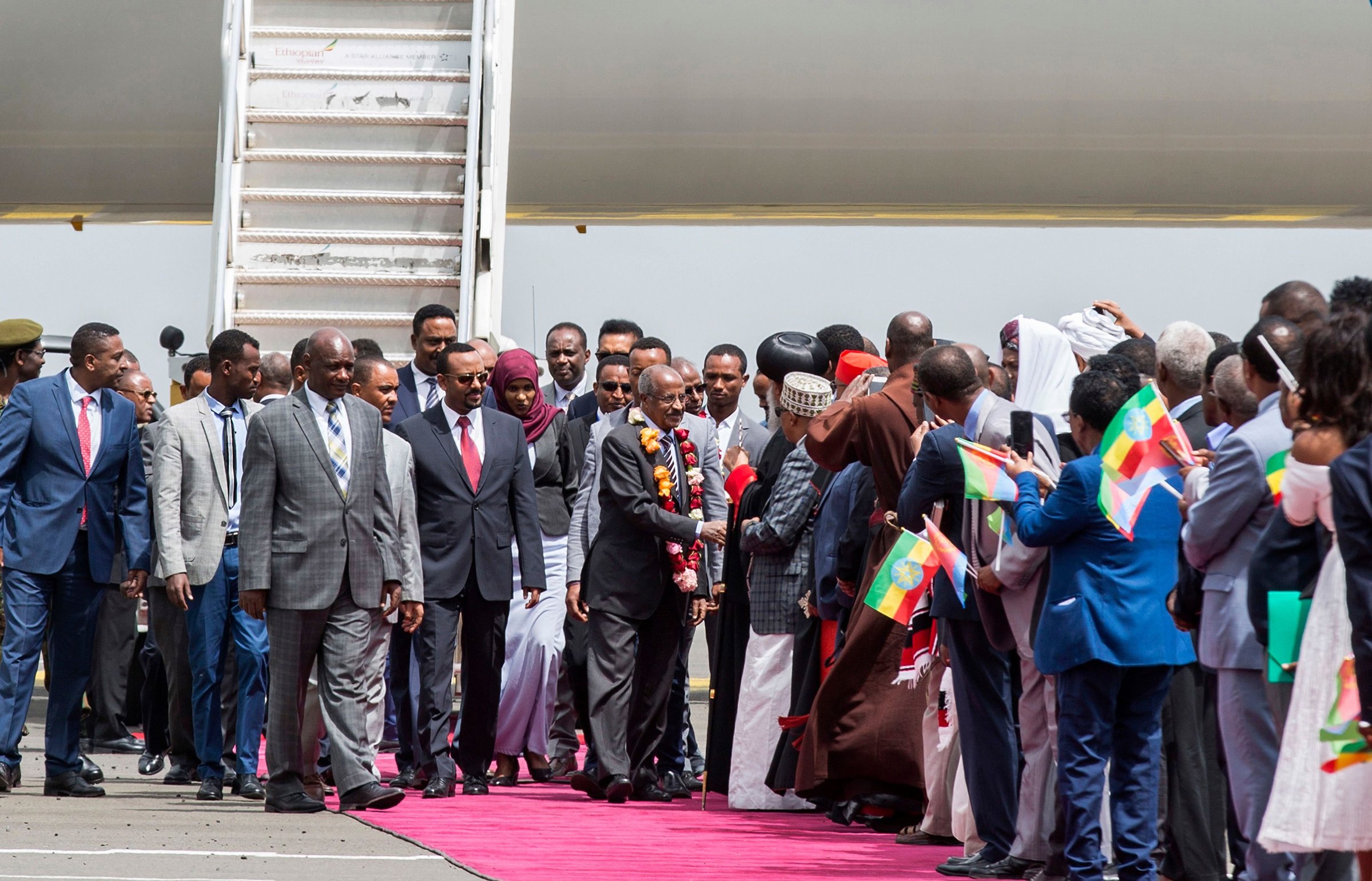
When the leaders of Ethiopia and Eritrea came together on July 8, they smiled and hugged–nearly two decades of hostility disappearing into the space closing between them. At the summit in Eritrea’s capital, Asmara, the leaders agreed to end their rivalry, the effects of which have been felt throughout the Horn of Africa and beyond. The “state of war that existed between the two countries,” Eritrea’s information minister tweeted, “has come to an end.”
Unfinished War
Eritrea gained independence from Ethiopia in 1993, but the two neighbors never settled into a good relationship. Fighting broke out over border disagreements in 1998, and at least 70,000 people were killed before the two sides signed a peace deal in December 2000. But Ethiopia refused to accept the border it established, leaving the countries locked in a state of “no war, no peace.” Because war could resume at any time, Eritrea has a severe conscription policy, which experts say is one reason why hundreds of thousands of citizens have sought asylum in Europe.
Historic Meeting
When Ethiopia’s new Prime Minister Abiy Ahmed took office in April, he began instituting changes, including lifting a state of emergency and freeing political prisoners. In June, he announced that Ethiopia would accept the border ruling from 2000, which prompted Eritrean officials to visit Addis Ababa. Now both leaders have promised to reopen embassies and resume trade, flights and direct phone lines between the countries. They also plan to jointly develop Eritrea’s ports, giving landlocked Ethiopia access to the Red Sea.
Moving Forward
The thaw in relations will allow both countries to cut back on defense spending to redirect funds elsewhere, such as to education and roads. But important work still remains. Crucially, the leaders have not publicly addressed what will happen to people living on land that may be redistributed as the border is finalized. Still, other leaders in the region have welcomed the news, hoping the end of war may open up both countries and usher in a new age of regional cooperation.
More Must-Reads from TIME
- How Donald Trump Won
- The Best Inventions of 2024
- Why Sleep Is the Key to Living Longer
- Robert Zemeckis Just Wants to Move You
- How to Break 8 Toxic Communication Habits
- Nicola Coughlan Bet on Herself—And Won
- Why Vinegar Is So Good for You
- Meet TIME's Newest Class of Next Generation Leaders
Write to Abigail Abrams at abigail.abrams@time.com